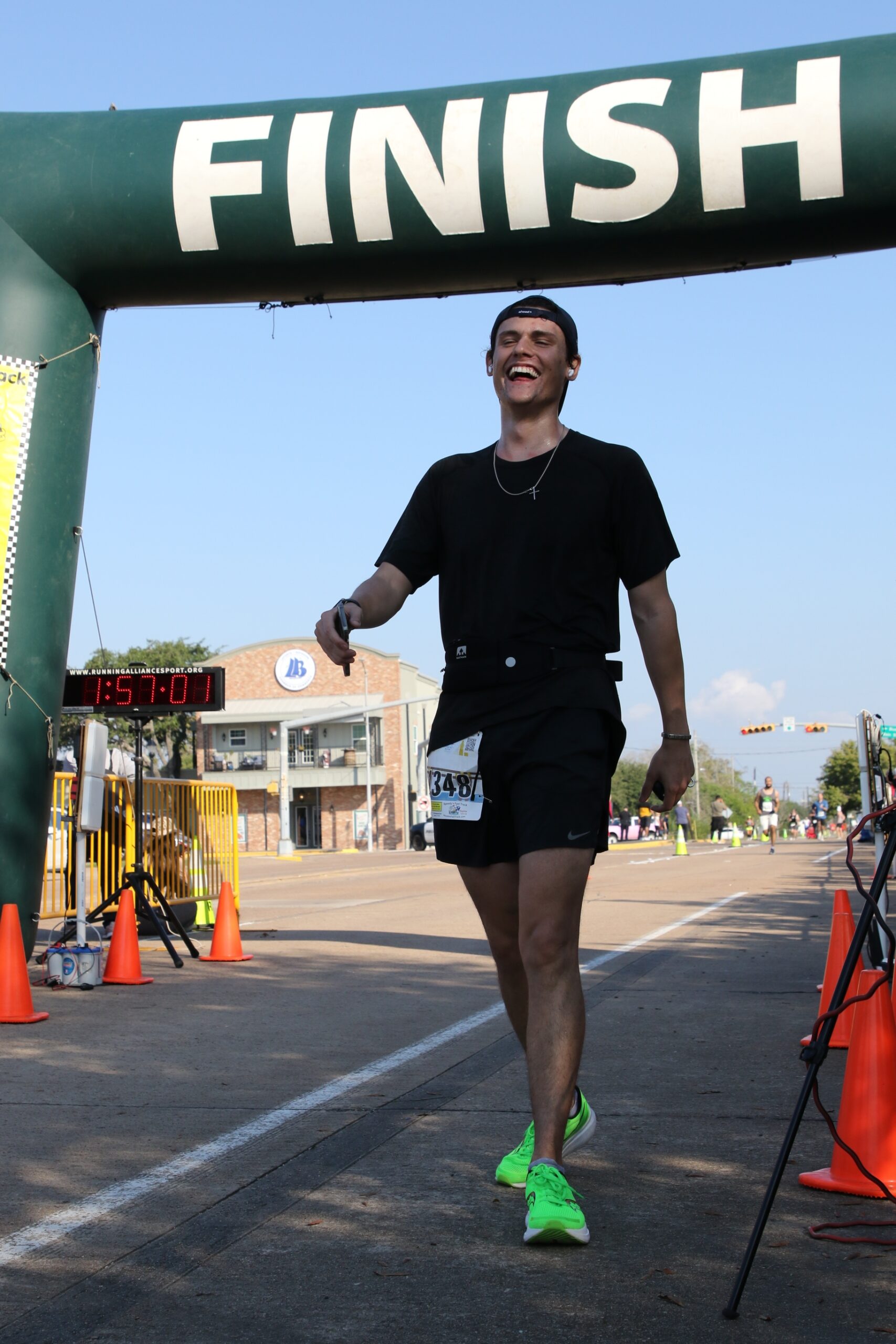Author: Charles Kelly
Life with bipolar disorder has been filled with highs and lows, and even when I’d managed my symptoms, I found myself facing a deeper struggle—a lingering distrust of the stable version of myself. The manic episodes had cast shadows, making me doubt the balanced, more reliable person I had worked hard to become. Overcoming this mindset was like shedding old layers, and I eventually realized that my stability didn’t strip away my creativity; it enhanced it. I wasn’t a lesser version of myself—I was more optimized, more focused. Stability allowed me to thrive in college, where I could handle the workload and discipline that once felt out of reach.
But this journey of self-acceptance didn’t happen overnight. It unfolded gradually, especially as I started running and, eventually, competing in half marathons. I never expected running to become a part of my life—it was something I stumbled into, almost as an escape from the pressures and criticisms that come with mental illness. At first, I ran simply to blow off steam, but soon I set tangible goals, pushing beyond just mental release. Running transformed from a coping mechanism into a way to test my limits.
During my first half marathon, doubts swirled in my head. Anxiety and negative self-talk echoed with each step: You can’t even finish. Those shoes were a stupid purchase. You’ll end up walking. This wasn’t just about running; it was a mirror of every exam and presentation where I’d let self-doubt hold me back. But despite these fears, I completed the race—a challenging course over bridges—finishing 13.1 miles in under two hours. This milestone was pivotal, showing me that I could push through mental barriers. With every mile, I realized I had always been capable; it was my mindset that needed shifting.
After that, I was hooked. Running became a way to break out of my comfort zone, where, as Mihaly Csikszentmihalyi describes, I found myself in the “flow” state—between boredom and anxiety. A month later, I signed up for a low-key half marathon in Houston. This time, I set my sights even higher, determined to improve my time. Crossing the finish line with a personal best of 1:47 was rewarding, but comparisons and online chatter made me question its significance. Yet I kept pushing forward, thinking each race had to be better, faster.
The next race, however, brought a breakthrough. With my girlfriend cheering me on, I aimed to finish in the 1:30s, a time I’d been hitting in practice. I pushed myself harder than ever and clocked in at 1:47, just slightly off from my goal, but enough to place second in my age group. Though I initially brushed it off, this race sparked a deeper realization: my running discipline could translate to other areas of my life. I was nearing the end of my toughest college courses, and I realized that the same focus, work ethic, and resilience I put into training could help me succeed academically and in life.
Running taught me that progress isn’t always about speed; it’s about commitment and growth. The skills I honed while training—focus, resilience, and discipline—could help me become a better student, writer, and person. Instead of letting distractions like Netflix or social media rob me of my focus and concentration, I began investing in things that truly mattered, like reading, journaling, and planning my future. This shift transformed “boring” tasks into purposeful pursuits, bringing more joy than any short-lived distraction ever could.
Ultimately, I realized that running fast or finishing strong was meaningless if I wasn’t succeeding in the parts of life that mattered most to me—my studies, relationships, and personal growth. Every time I chose discipline over fleeting pleasure, I honored the people who believed in me and reminded myself of my potential. Brutal honesty with myself and support from my therapist helped me channel this energy into things that mattered: graduating, considering graduate school, and rekindling my passion for research.
Running has been more than just a physical journey; it’s been a pathway to self-discovery. I’m no longer running just to escape; I’m running toward something—toward a version of myself that I believe in, that I respect, and that surprises me with what I can accomplish.

The content of the International Bipolar Foundation blogs is for informational purposes only. The content is not intended to be a substitute for professional medical advice, diagnosis, or treatment. Always seek the advice of your physician and never disregard professional medical advice because of something you have read in any IBPF content.


